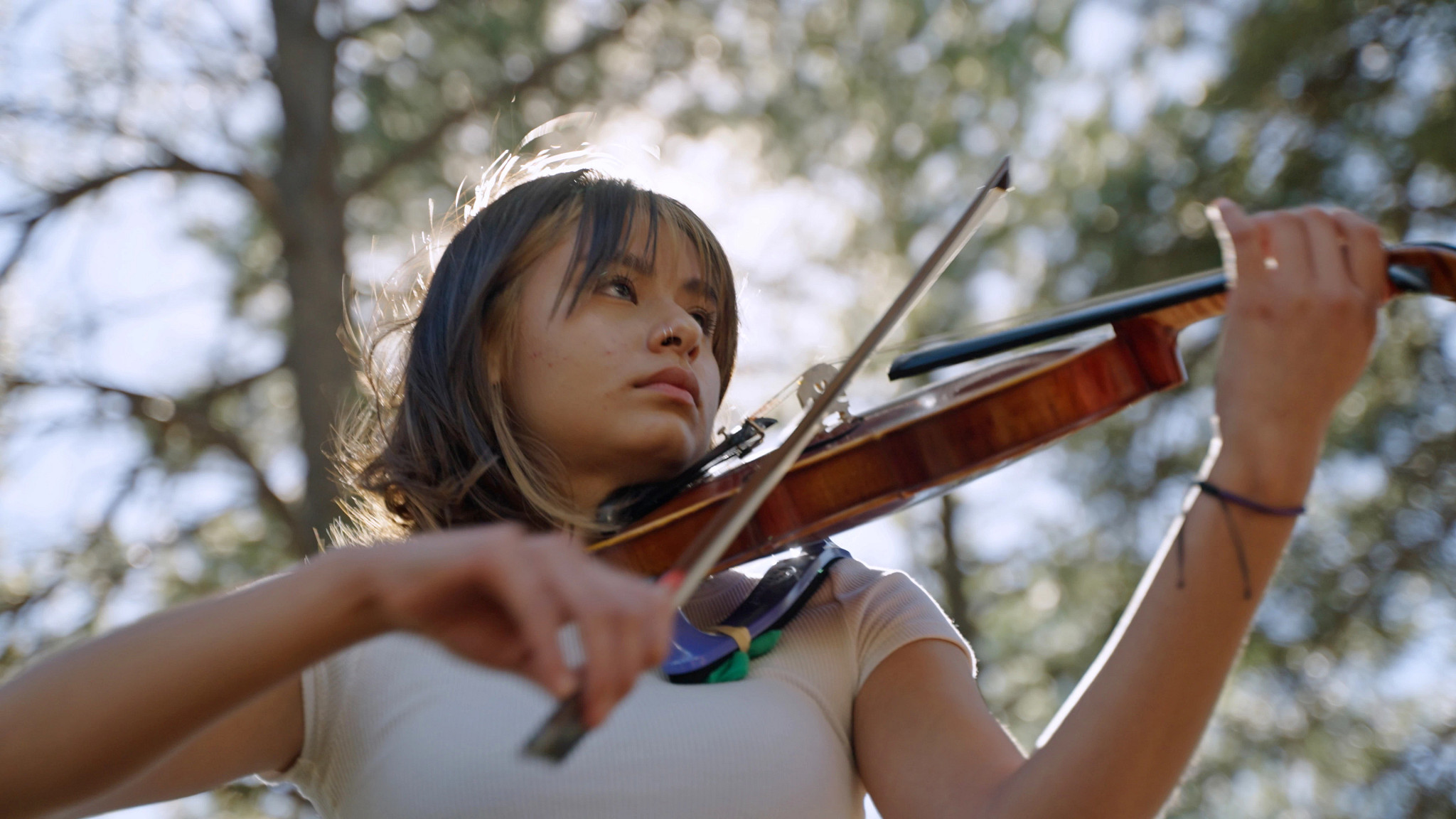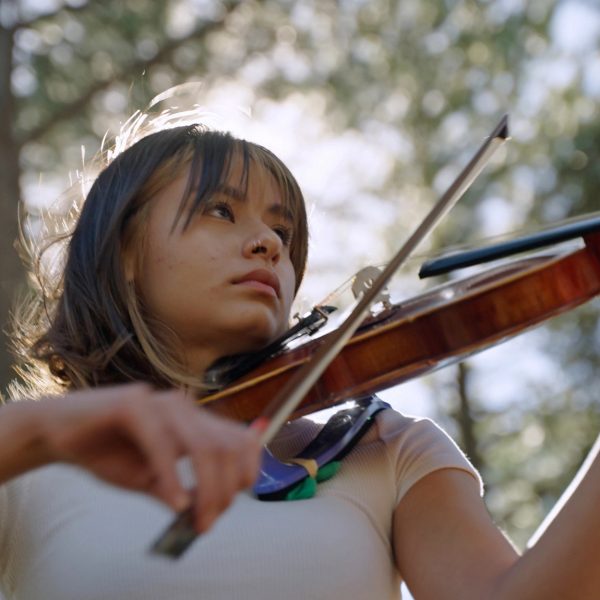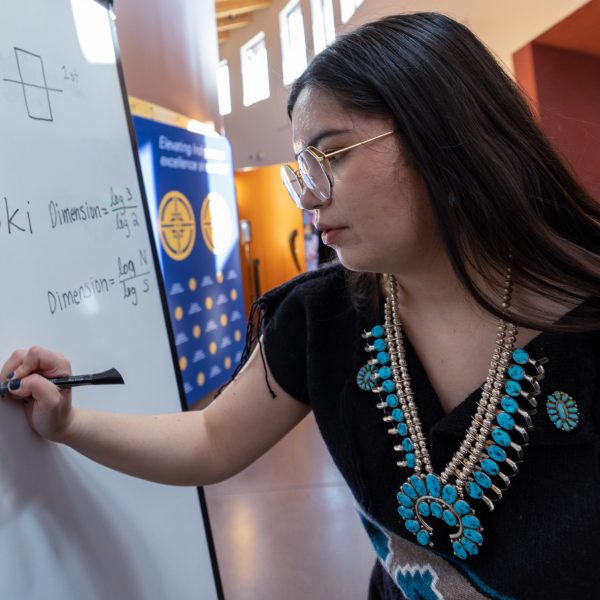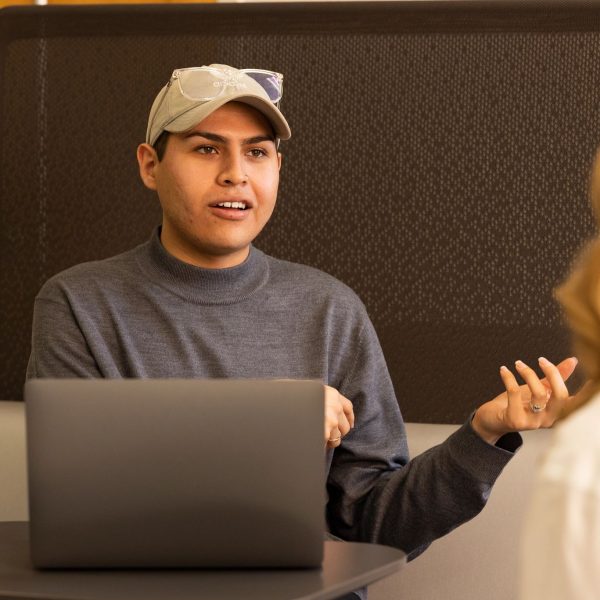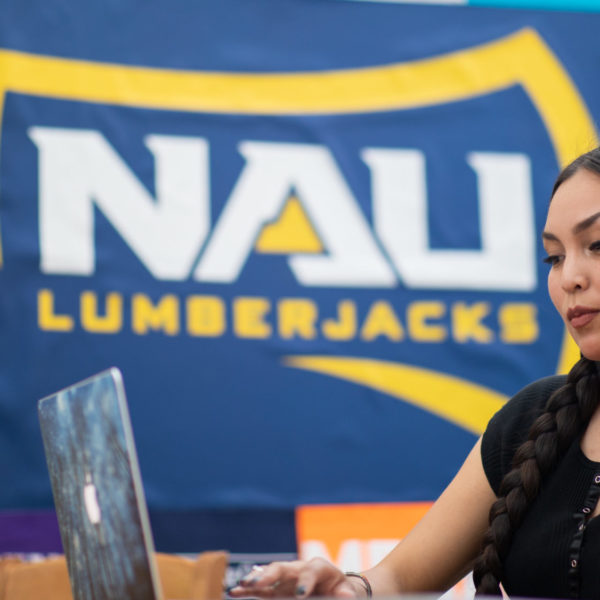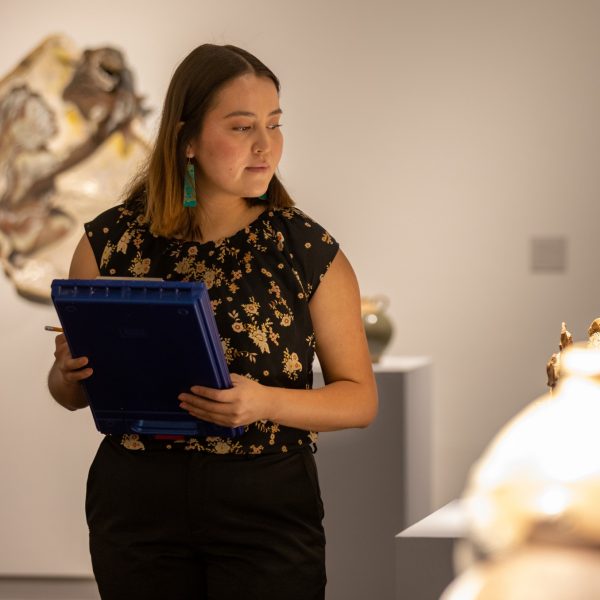A lot happened between Kaya Dickson’s first and second years of college.
She found a community of friends, rekindled her passion for music, and regained her footing as a student. She also switched her major from music to Sociology.
Dickson (Diné) grew up in Page, Arizona. Her maternal clan is Giant Red Running into Water clan, her paternal clan is the Rock Gap clan, her maternal grandfather is Hispanic, and her paternal grandfather is Coyote Pass clan.
A Flinn Scholar and Honors College student, Dickson entered NAU as a Music and Music Secondary Education major. As a high-achieving student, she tried to cope on her own when struggles arose. But the first-generation student needed help.
During this time, Dickson relied on her determination. She eventually found the support she needed from her violin teacher, Karin Hallberg, and the Honors Native American Summer Research Program (HNASRP).
Hallberg, Principal Lecturer of String Pedagogy, became a sounding board for Dickson. “She knew how much I was struggling my first year, with the transition to college and figuring out what I wanted to do with music,” Dickson says. “She was a safe place for me to express my feelings and thoughts.”
Dickson was conflicted: she loved music but wanted to switch majors. “I was in music education, and I did my research project on the benefits of music education. But I realized that I want to keep the music aspect in my life, but not necessarily go into music education,” she says. “I started taking sociology classes and was interested in those topics.”
The Honors Native American Summer Research Program (HNASRP)
Dickson researched the importance of music education while attending the HNASRP during the summer between her first and second years. This program, held on NAU’s Flagstaff campus, is open to undergraduate students with Native American, Native Hawaiian/Pacific Islander, or Alaska Native heritage. During the four-week program, participants attend lectures, read and discuss research literature, and then, with help from a mentor, conduct their research and present their results.
During the program, Dickson made friends with the three other participants. Even though their research topics were very different—economics, engineering, history, and music—Dickson and her new friends enjoyed talking about their academic journeys and the experience of going to college as Indigenous students. “I don’t think I realized until this year how comforting it is to be around other Native students,” she says. “I can make certain jokes, and we completely understand each other. It makes me feel less isolated.”
With Hallberg as her mentor, Dickson focused on the cognitive benefits of music education and discovered that young minds benefit from participating in a choir or band. “Coming from my high school, I realized how crucial it is to have qualified music educators. If I didn’t do music, I wouldn’t have been as successful,” she says. “It’s a lot more beneficial than people think, especially for children. Exposing children to music and growing up with it helps get certain motors in the brain working that can be applied to different subjects.”
At the end of the summer, Dickson presented the results of her research. “The program gave me the ability to advocate for music because a lot of people underestimate that discipline,” she says. “I feel I can help people look at it from a different perspective and also tie it in with education.”
Even though music is no longer her major, it is still an integral part of her life. “If I’m stressed or overwhelmed with anything, I can just turn to my violin and tune everything out. It keeps me sane, so I definitely want to keep it in my life,” she says.
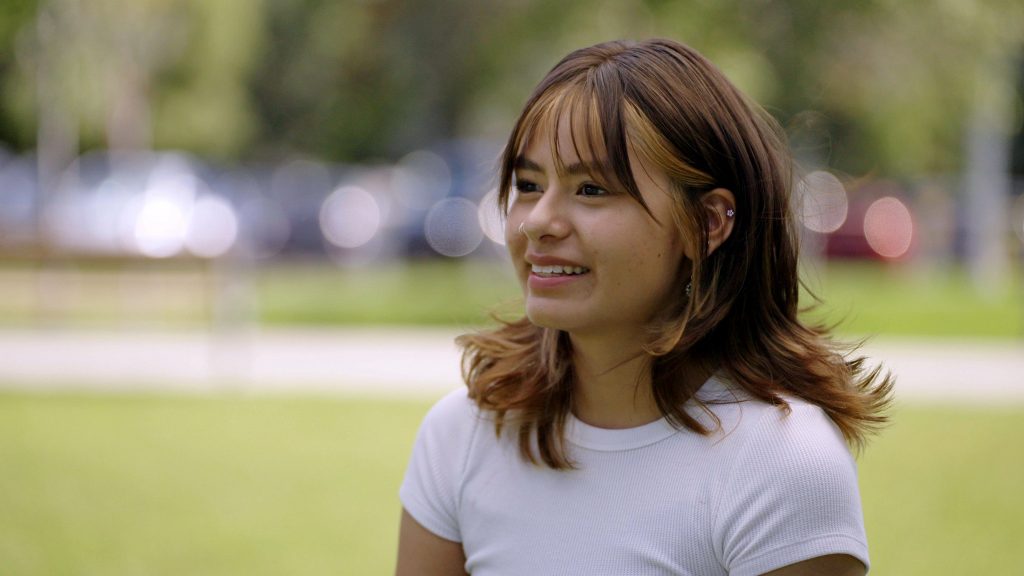
Breaking the cycle
Dickson wishes she had known to ask for help earlier as a first-year, but realizes her journey can help incoming students. “Just the other day, one of the newer Flinn Scholars came to me asking for help with his major,” she says. “I guess now I view it like I’m able to help others with my own experience.”
She enjoys her sociology courses and ultimately wants to pursue a research-focused field similar to what she was doing with HNASRP. She wants to inspire others in her community to attend college. “Being the first generation, it is difficult to ask for help and support while I navigate college because I do not know anyone who made it to the point that I have. It is a lot of pressure. But I feel like I’m finally going in the direction where I’m changing that bad cycle, and I’m hoping my siblings and others around me see that and continue finding their paths, especially in education.”

